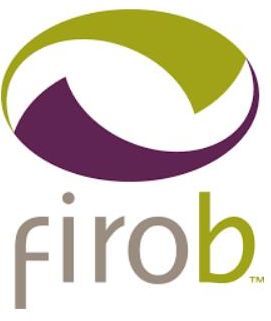
My mission is to provide a bespoke service to support effective leadership. Through my provision of 1:1 coaching, I am able to provide my clients the opportunity to realise their potential and help them attain their career goals.
I love coaching because I find it rewarding to make a difference to someone’s life. Having comments like the one below, which I recently received from one of my clients inspire me to continue to offer this service.
“Hi Jacqueline, I just wanted to drop you a quick update note, to tell you good news. Ally was promoted to the next level HR BP. He was over the moon and I can see really positive things ahead. Lots down to the impact of your coaching sessions and feedback, so thank you!” (Shona Artale, Director HR EMEA, Global HR Business Partner, Q² Solutions)
What is Executive coaching?
Executive coaching is a professional development process that focuses on enhancing the skills, performance, and overall effectiveness of executives and leaders within organisations. It involves a partnership between the coach and the executive to identify goals, develop strategies, and provide support in achieving those goals. The benefits of executive coaching are numerous and can have a significant impact on both the individual and the organisation as a whole. Here are some key benefits:
- Self – awareness and personal growth: Executive coaching helps leaders gain a deeper understanding of their strengths, weaknesses, values, and beliefs. This self-awareness allows them to identify areas for improvement and develop strategies to enhance their leadership skills.
- Improved leadership effectiveness: Executive coaching focuses on enhancing leadership capabilities, such as communication, decision-making, conflict resolution, and strategic thinking. It helps leaders develop the skills and mindset necessary to inspire and motivate their teams, drive organisational change, and achieve business objectives.
- Enhanced Problem-solving and decision- making: Through coaching, executives learn to approach problems and challenges from different perspectives, think critically, and make effective decisions. They gain access to new strategies, tools, and frameworks that enable them to navigate complex situations and drive innovation.
- Increased emotional intelligence and resilience: Executive coaching often addresses emotional intelligence, helping leaders develop self-awareness, empathy, and relationship-building skills. It enables them to manage their emotions effectively, navigate difficult conversations, and build resilience in the face of adversity.
- Accelerated career development: Executive coaching can support leaders in setting and achieving career goals, whether it’s progressing within their current role or transitioning to a new one.
How to select an Executive Coach?
Here are some suggestions.
- Define your goals: Before selecting an executive coach, clarify your coaching goals and what you hope to achieve through the coaching relationship. This will help you find a coach who aligns with your objectives.
- Assess qualifications and experience: Look for a coach who has relevant qualifications, certifications, and experience working with executives or leaders in your industry. Consider factors such as their educational background, coaching certifications, accreditation with a reputable professional coaching body and the length of their coaching experience.
- Check references and reputation: Ask for references from previous clients and follow up with them to gather feedback on the coach’s effectiveness and professionalism. Additionally, research the coach’s reputation within the coaching community or seek recommendations from trusted colleagues.
- Chemistry and rapport: Executive coaching is a collaborative process, so it’s crucial to establish a strong rapport and comfortable working relationship with the coach. Consider scheduling an initial meeting or consultation to assess the chemistry and ensure compatibility.
- Coaching approach and methodology: Enquire about the coach’s coaching approach and methodology to ensure it aligns with your preferences and learning style. Some coaches may focus on specific areas such as leadership development, emotional intelligence, or career transitions, so choose one whose expertise matches your needs.
- Clear expectations and process: Discuss and establish clear expectations regarding the coaching process, including the frequency and duration of sessions, confidentiality, evaluation methods, and how progress will be measured.
- Cost and logistics: Consider the coach’s fees and whether they fit within your budget. Additionally, discuss logistical details such as session formats (in-person, virtual, or a combination), availability and scheduling flexibility.
For further details on the coaching service that I provide please see coaching provided by Jacqueline @JM Potential.









